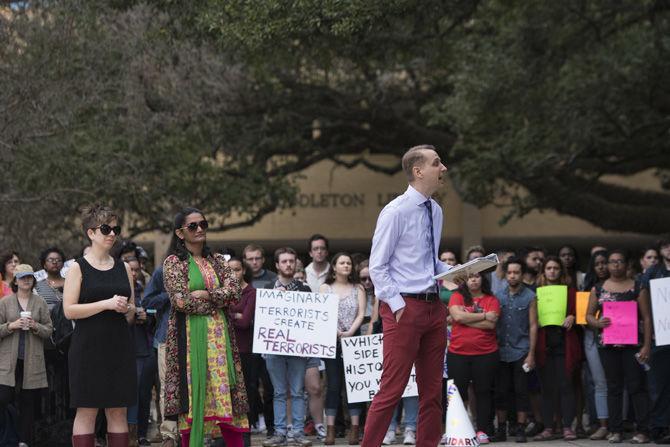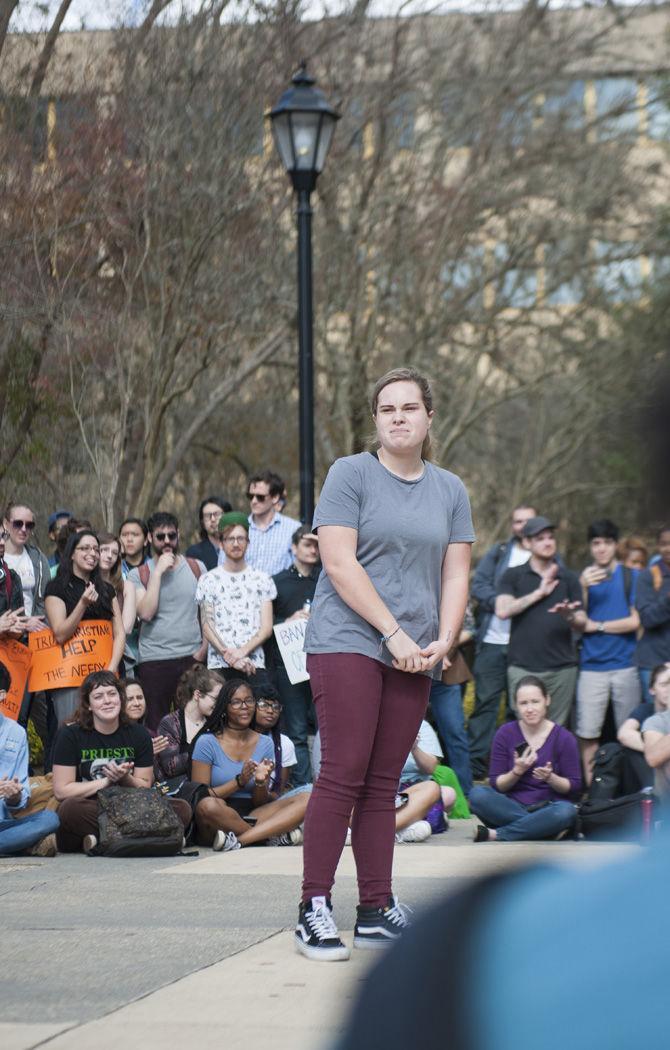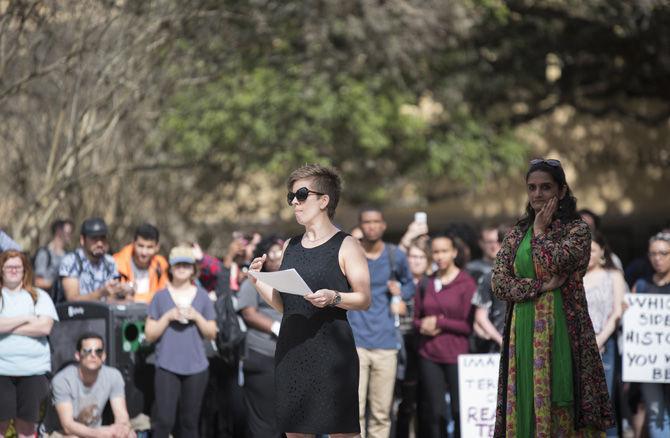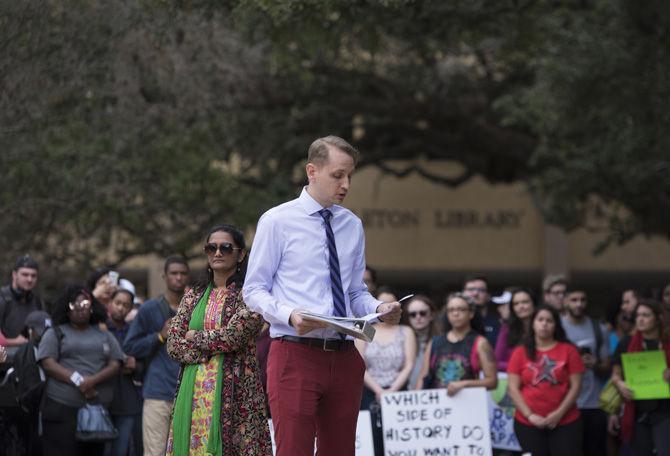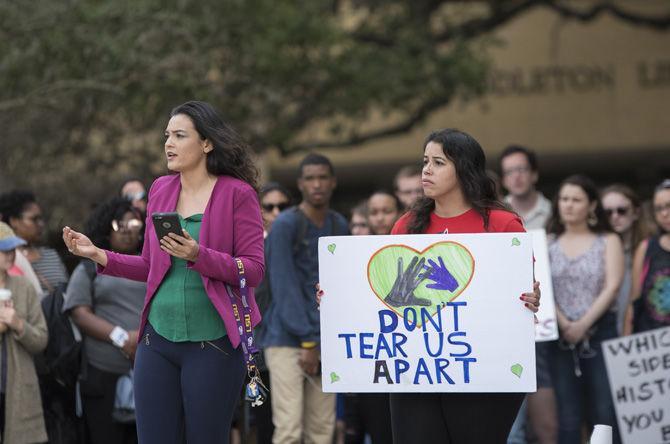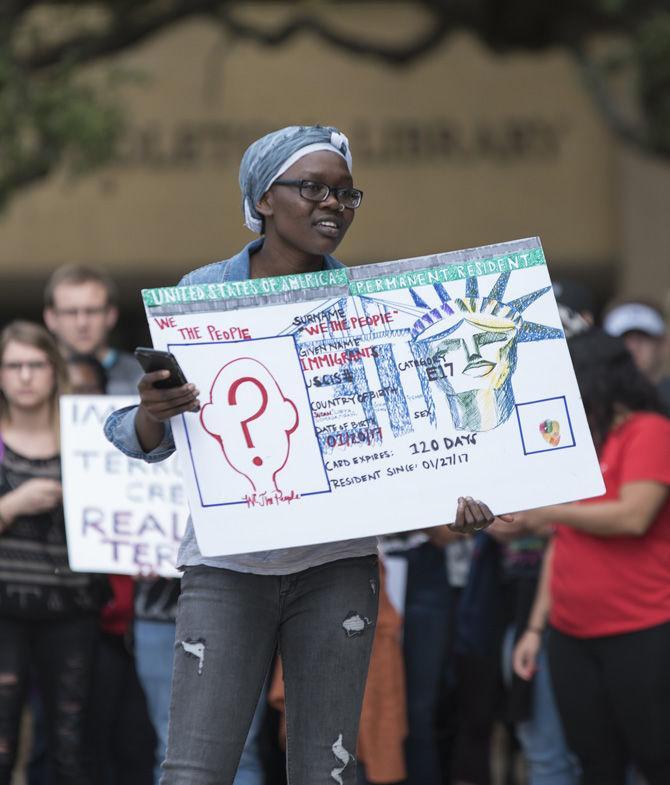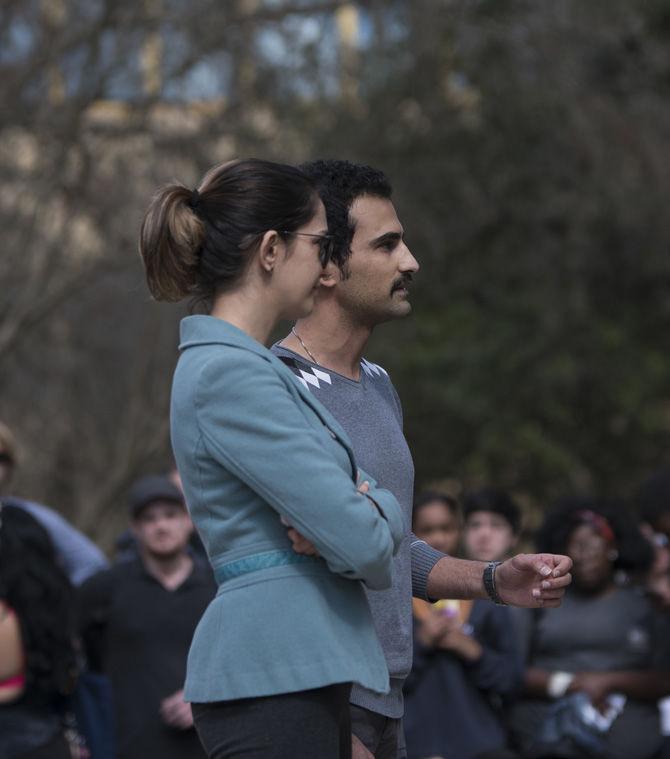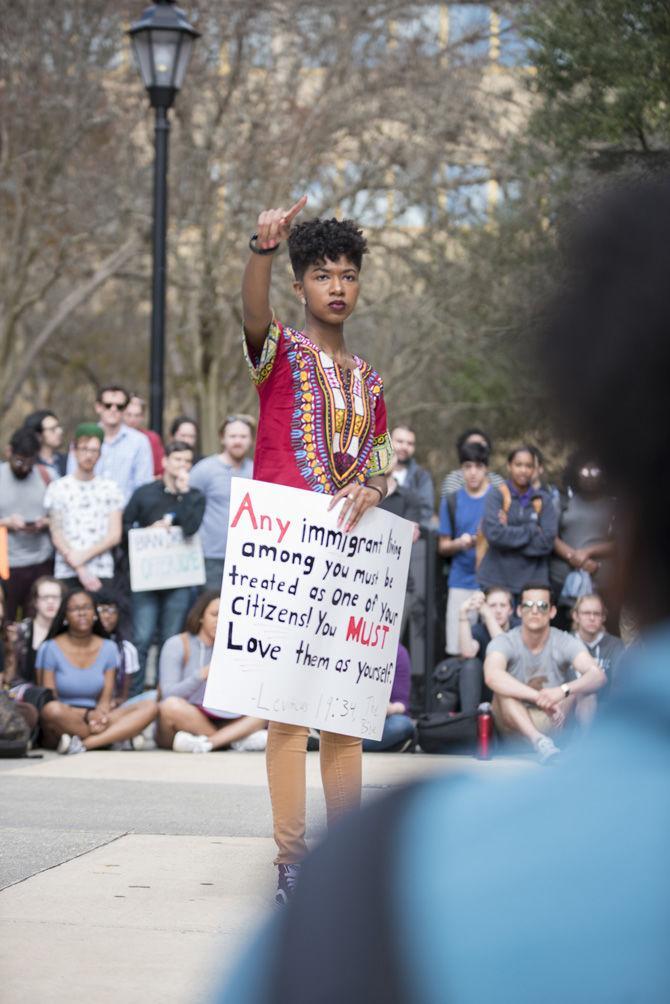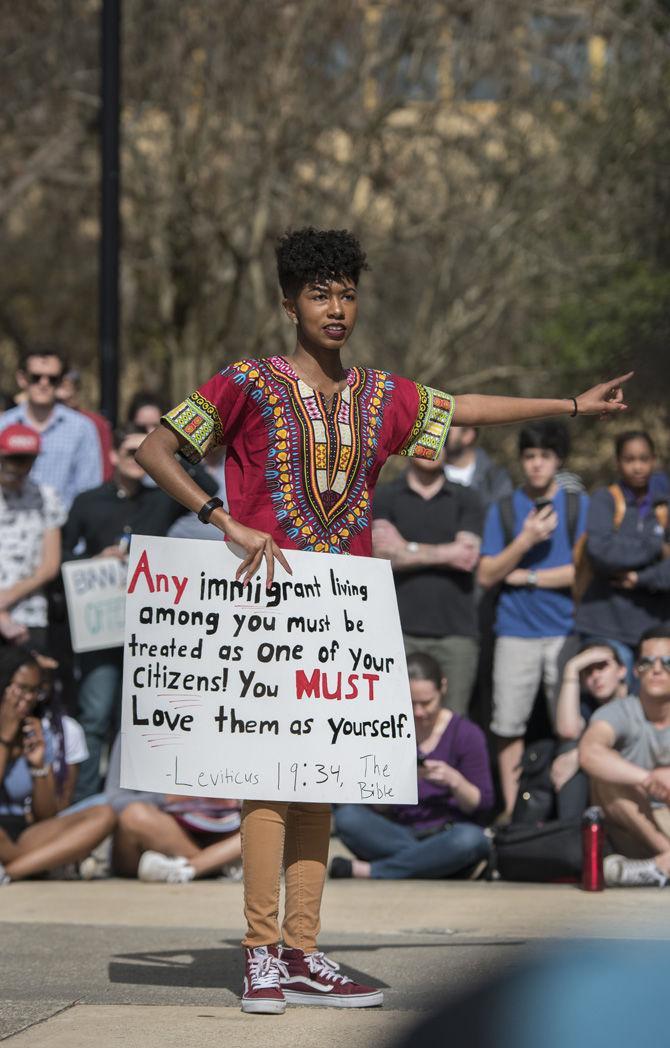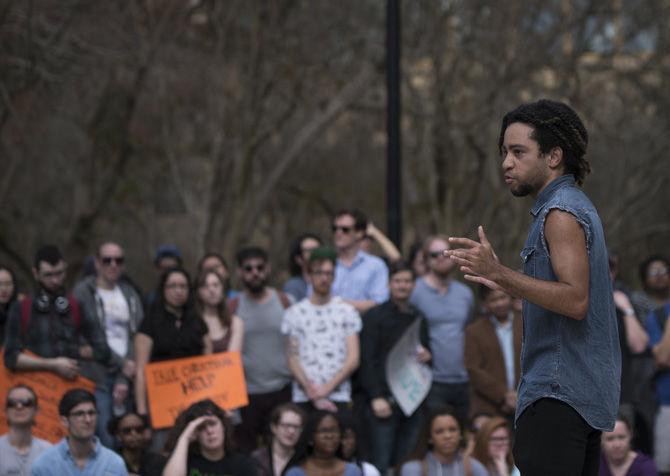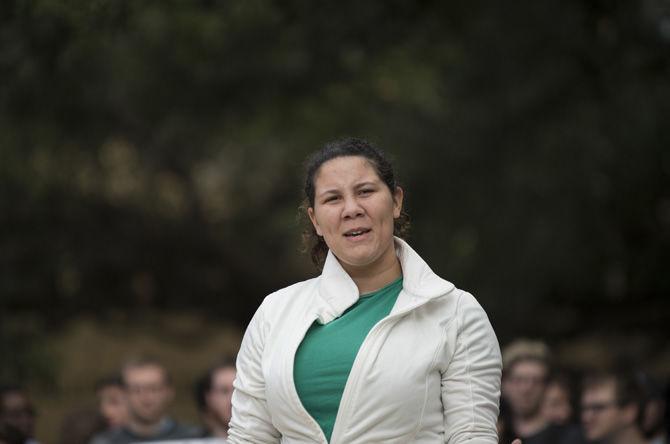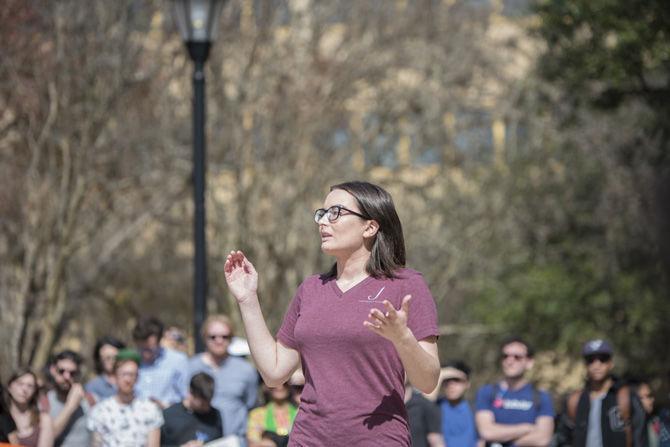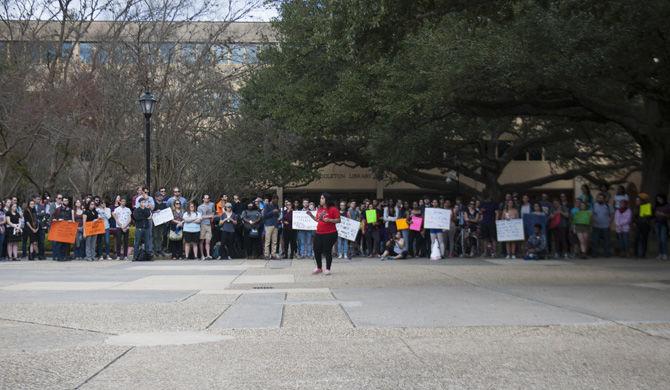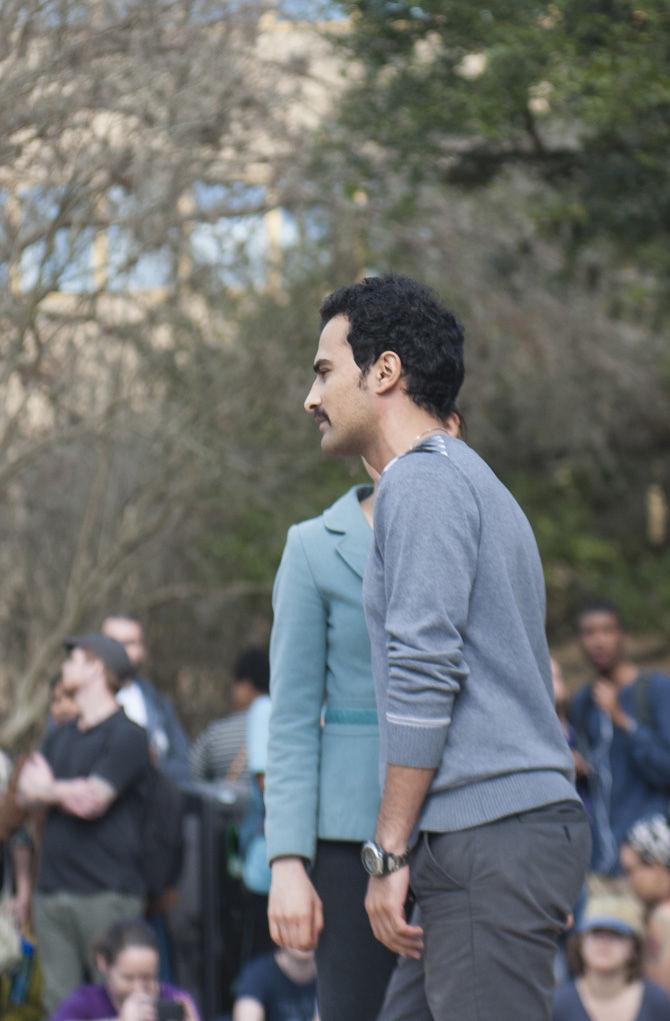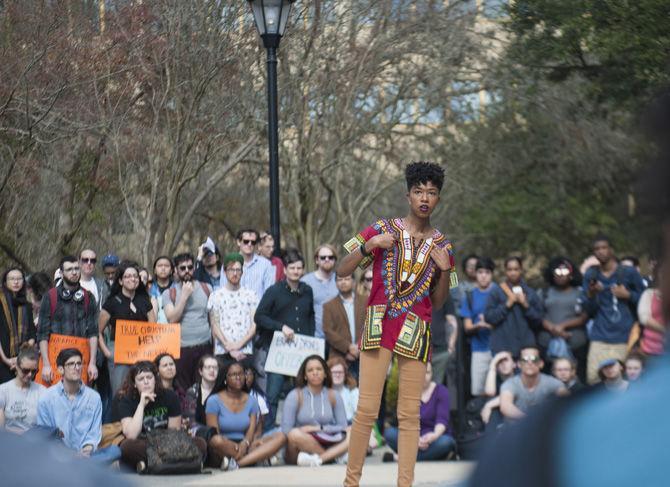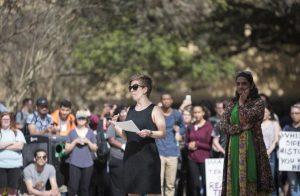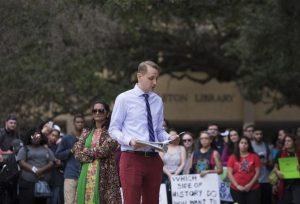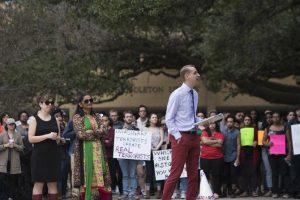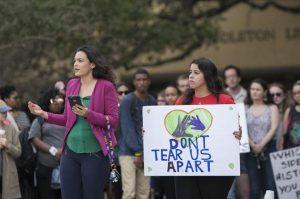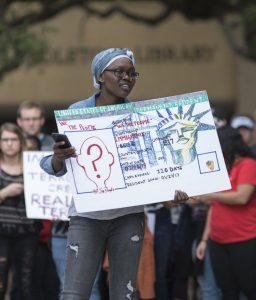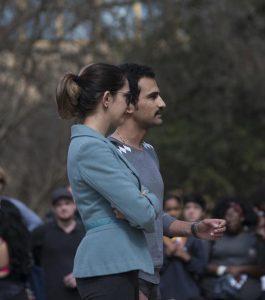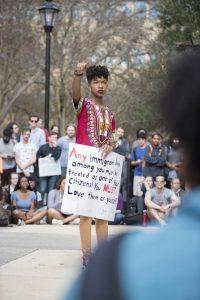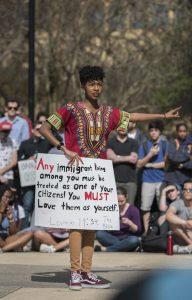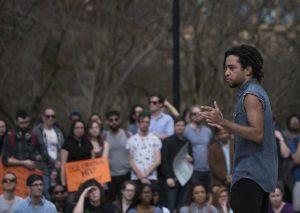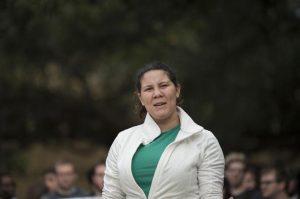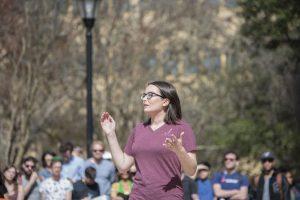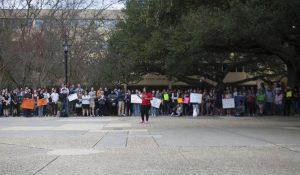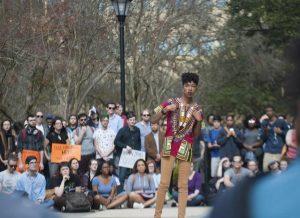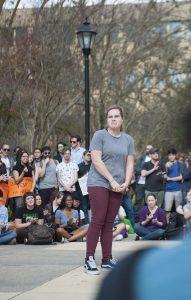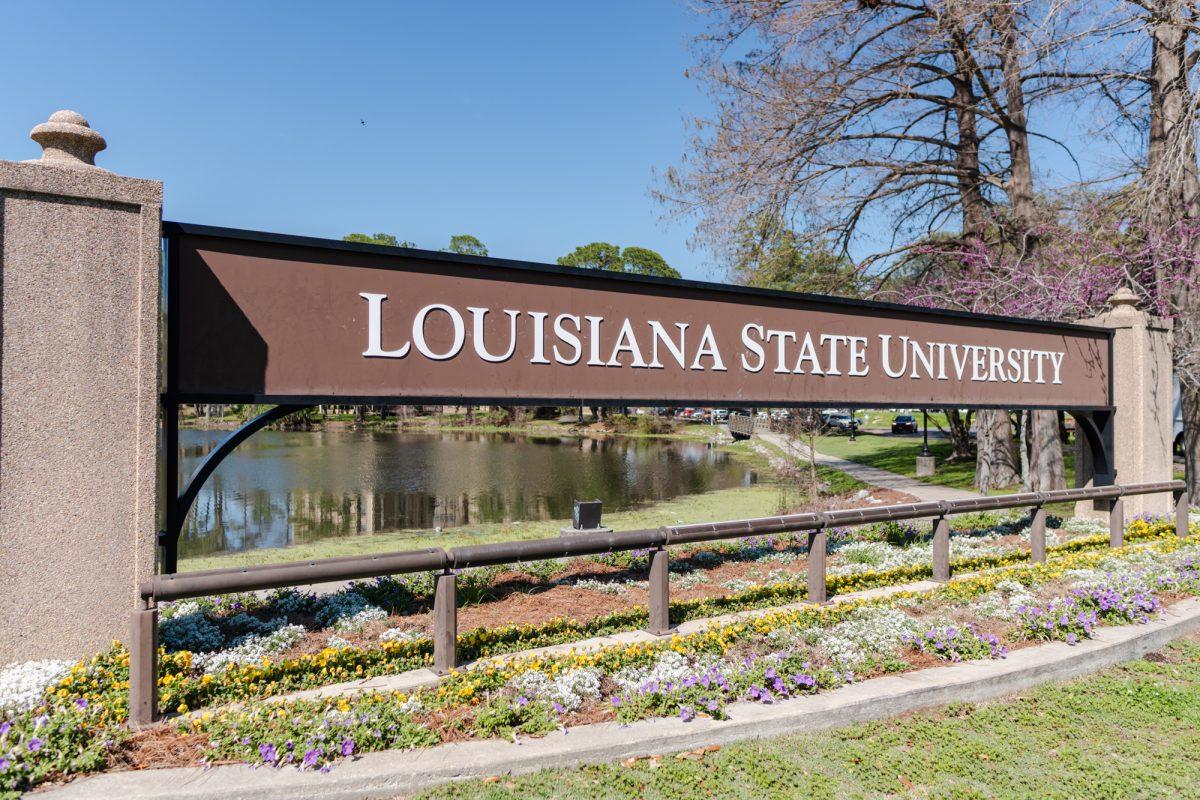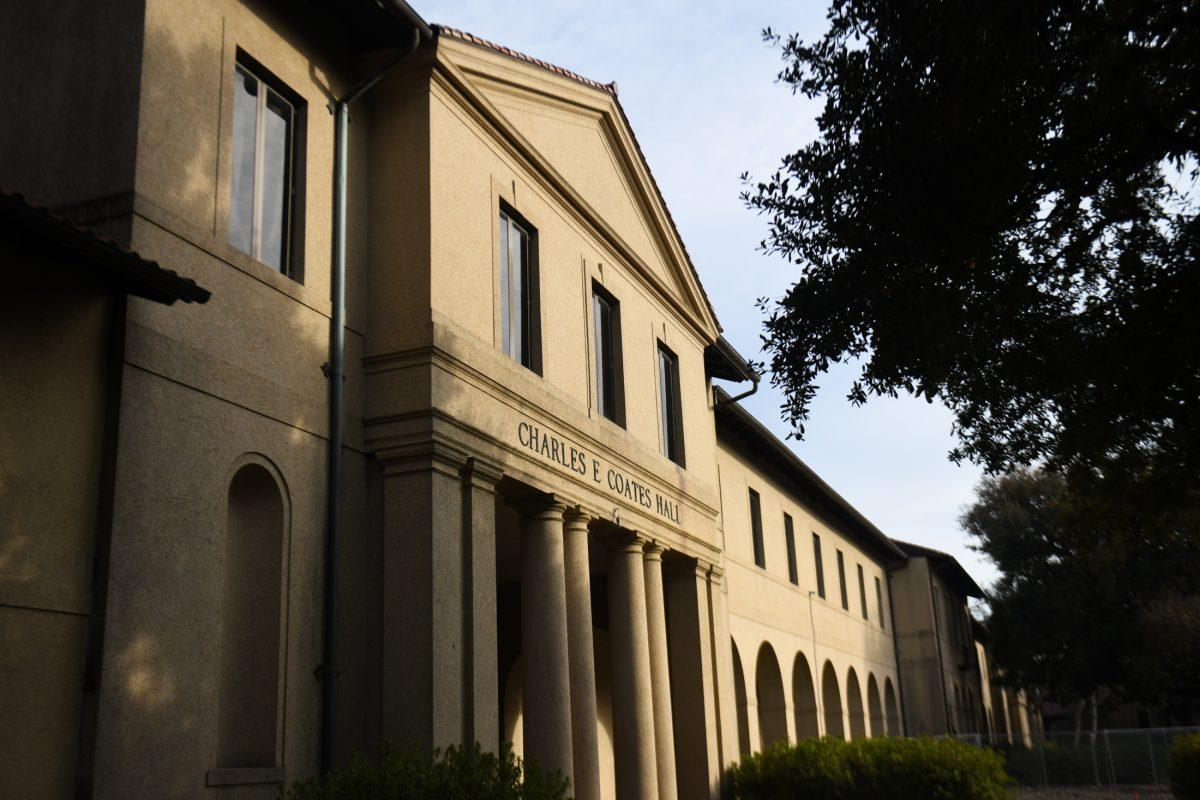A group of University professors is advocating concrete administrative action in the face of President Donald Trump’s executive order limiting travel from seven Muslim-majority countries.
Assistant history professor Brendan Karch, associate English professor Pallavi Rastogi, assistant women’s and gender studies and history professor Catherine Jacquet and assistant anthropology professor Micha Rahder authored a faculty petition calling on the University to take proactive steps to support its international students and faculty.
The petition isn’t meant as an abstract request, as an incoming University student in Iran has already been affected by the travel ban, Karch said. Fatemeh*, a comparative literature Ph.D. candidate, and her husband were expected to arrive at the University before Feb. 1, but were delayed suddenly after the travel ban was announced, Karch said.
Fatemeh and her husband were granted passports on Jan. 25 after a long administrative process that prevented them from arriving at the beginning of the semester. They were prepared to arrive in the United States; they had their flight tickets, sold their belongings and quit their jobs, when suddenly the rug was pulled out from under them, Karch said.
Fatemeh has barely eaten in days, wracked with fear and uncertainty that her one opportunity to pursue an education in the United States might be foreclosed, he said. While the travel restrictions have been temporarily stayed, Fatemeh is facing additional bureaucratic hurdles that are preventing her from traveling to the United States, Karch said.
“My life in the past year was the scene of challenge, uncertainty and anguish,” Fatemeh said via an audio recording. “I am a simple student who wants to be given the chance to study in a U.S. university. Please do not consider us as others.”
Ensuring Fatemeh and other affected members of the University community are supported is crucial to protecting the mission and values of the University, Karch said.
In just over 48 hours, the professors’ petition was signed by 248 faculty members and 171 non-faculty, including University staff, graduate students and alumni, Karch said. To date, the petition has been signed by over 450 people.
English instructor Christina Armistead was one of the faculty members who signed the petition. Armistead teaches an English 2000 course that includes a service learning component in which students are paired with ESL conversation partners, many of who come from countries included in the ban.
Armistead said she signed the faculty petition because she was hungry to show her support for the students in any way she could.
“A fourth of the students every semester in this partnership I run are from Iran, and a few of them are from Libya and Yemen,” she said. “It’s not an abstraction. It’s real for many of our students.”
Jacquet, Karch and Rastogi delivered the petition to LSU President F. King Alexander’s office on Feb. 2 and said the administration was welcoming their suggestions.
The petition’s suggestions were two-tiered. First, the petition requested the University to make a stronger statement in support of its students and faculty. On Jan. 30, Alexander sent a broadcast email to the University noting the benefits of cultural and intellectual exchange and the “significant alarm within the higher education community” following the order’s announcement.
While it is a step in the right direction, Karch said a statement that speaks not only to the economic value of the students, but to the values of the University and the humanitarian effects of the order is important.
In addition to a statement, the petition called for the administration to utilize available material resources to support affected students and faculty. Karch said this includes offering informational sessions and providing a counselor or professional on campus who could offer confidential meetings and provide legal advice.
Many of the affected students are frustrated and confused by the constant fluctuations surrounding the order’s implementation, Rastogi said.
On Feb. 3, a federal judge in Seattle placed a stay on the executive order, halting its implementation and temporarily allowing individuals from the seven countries to enter the United States. On Feb. 7, the 9th Circuit Court of Appeals began hearing testimony to determine if it will uphold the stay or reimplement the order.
Having updated and easily accessible information is crucial for the students to better grasp the situation, Rastogi said. Another suggestion was offering work and housing assistance for those who may no longer be able to leave the country, she said.
If the order is enacted, a number of students plan to forgo returning home for the summer and may be without summer housing or employment, Rastogi said. Utilizing vacated campus housing and offering the students on-campus summer employment are practical steps the University could feasibly execute, she said.
The second set of requests called for proactive policy changes regarding the University’s explicit stance on immigration and identifying students’ immigration status. Karch said the University is unlikely to move on these requests in the near future, given the complex legal, political and economic factors at play.
Though the petition has been delivered, the group’s efforts are ongoing, he said.
The group is taking steps to personally connect with affected students to identify their immediate needs and serve as better advocates to the University administration. They are also reaching out to sympathetic administrators who could help implement some of the petition’s requests, Karch said.
Executive Director of Policy and External Affairs Jason Droddy, who accepted the petition on behalf of Alexander, said the administration and faculty both want to assuage the fears of international students and faculty at this time.
International Programs is currently the chief point of contact for affected students, and the office has been in contact with all international students to relay information appropriate to each student’s situation, he said.
Droddy said his conversation with the professors was productive and the administration is glad they came forward.
“We are grateful to our faculty for bringing the issue forward and it speaks volumes about their commitment to our students,” Droddy said.
Editor’s note: The student mentioned in this story requested to remain anonymous. The Daily Reveille elected to use a fictitious name, Fatemah, to preserve her identity.


